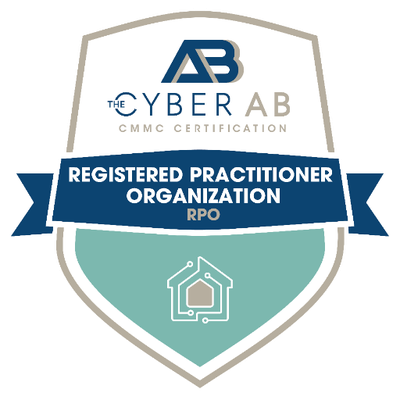CFOs are tasked with making critical decisions that significantly impact the financial health and stability of their organizations. However, when it comes to cybersecurity, overconfidence can be a perilous pitfall. Some companies may fall into the trap of believing they are immune to cyber attacks or that their current security measures are robust enough to fend off potential threats. This misplaced confidence, often fueled by the belief that their organization is too small or insignificant to attract cybercriminals, can lead to complacency and a dangerous false sense of security. In this article, we will explore why overconfidence in cybersecurity is a hazardous mindset and why investing in cybersecurity compliance is not just prudent—it’s essential for safeguarding the long-term viability of our organizations.
The Fallacy of Invincibility
The notion of invincibility is a common fallacy in the world of cybersecurity. It’s all too easy for companies to believe that they are somehow shielded from cyber threats due to their size, industry, or perceived lack of value. However, this belief is fundamentally flawed. Cybercriminals are becoming increasingly sophisticated, employing advanced techniques and tools to exploit vulnerabilities and infiltrate even the most well-defended organizations. The assumption that “it won’t happen to us” can lead to a dangerous complacency, leaving organizations exposed to devastating cyber attacks.
No organization is too small or too insignificant to escape the attention of cybercriminals. Smaller businesses are often targeted precisely because they may have less robust security measures in place. As cyber threats continue to evolve, so too must our approach to cybersecurity. The risks associated with overconfidence include not only financial losses from breaches and legal penalties but also severe reputational damage that can erode customer trust and impact long-term business viability. Ignoring the reality of cyber threats and succumbing to a false sense of security can have catastrophic consequences for any organization.
The Importance of Effective Communication
Addressing the challenge of overconfidence requires effective communication about the importance of cybersecurity compliance. For CFOs, understanding that cybersecurity is not merely a technical issue but a strategic business imperative is crucial. Cybersecurity impacts the organization’s ability to protect sensitive data, preserve customer trust, and maintain a positive reputation. As decision-makers, CFOs must be equipped to convey this message to their teams and stakeholders in terms that resonate with their business goals and financial priorities.
Investing in cybersecurity compliance is not just a cost; it is a strategic investment that can yield substantial returns. Effective communication can help demonstrate the potential return on investment (ROI) of cybersecurity measures by highlighting the long-term benefits of preventing costly data breaches and avoiding regulatory fines. For instance, the financial implications of a data breach extend beyond immediate remediation costs and fines. They also include long-term impacts such as loss of customer trust, reduced revenue, and increased insurance premiums. By framing cybersecurity compliance as a proactive measure that safeguards the organization’s financial health and operational continuity, CFOs can better advocate for necessary investments in this critical area.
Providing Clear Guidance and Examples
To further combat overconfidence, providing clear and actionable guidance on achieving cybersecurity compliance is essential. CFOs need practical advice on implementing robust security measures and ensuring ongoing compliance with relevant regulations and standards. This guidance should be tailored to the specific needs and risks of the organization and may involve partnering with trusted cybersecurity experts who can provide support and expertise throughout the process.
One valuable resource is working with specialized cybersecurity firms like Omnistruct, which offer comprehensive solutions for achieving and maintaining compliance. These experts can help organizations navigate the complex landscape of cybersecurity regulations, develop effective security strategies, and implement best practices tailored to their specific needs. Additionally, sharing case studies and real-world examples of companies that have suffered from cybersecurity breaches can be a powerful tool in illustrating the importance of proactive measures. These examples serve as stark reminders of the potential risks and financial repercussions of non-compliance, underscoring the necessity of remaining vigilant and proactive.
For instance, consider the high-profile data breaches experienced by major corporations, which resulted in billions of dollars in losses and significant reputational damage. These real-world examples highlight the critical need for robust cybersecurity measures and serve as a compelling argument for why organizations must invest in comprehensive cybersecurity compliance. By learning from the experiences of others and understanding the potential financial and operational impacts of breaches, CFOs can better appreciate the value of cybersecurity investments and the importance of avoiding overconfidence.
A Call to Action
Overconfidence in cybersecurity is a dangerous mindset that can leave organizations vulnerable to severe cyber attacks. CFOs must recognize the risks associated with this mindset and take proactive steps to invest in cybersecurity compliance. By effectively communicating the strategic importance of cybersecurity, providing clear guidance on achieving compliance, and sharing real-world examples of the consequences of non-compliance, CFOs can ensure the long-term viability and success of their organizations. Investing in cybersecurity compliance is not just a choice—it’s a necessity for protecting against the ever-present threat of cyber attacks and securing the organization’s future.




